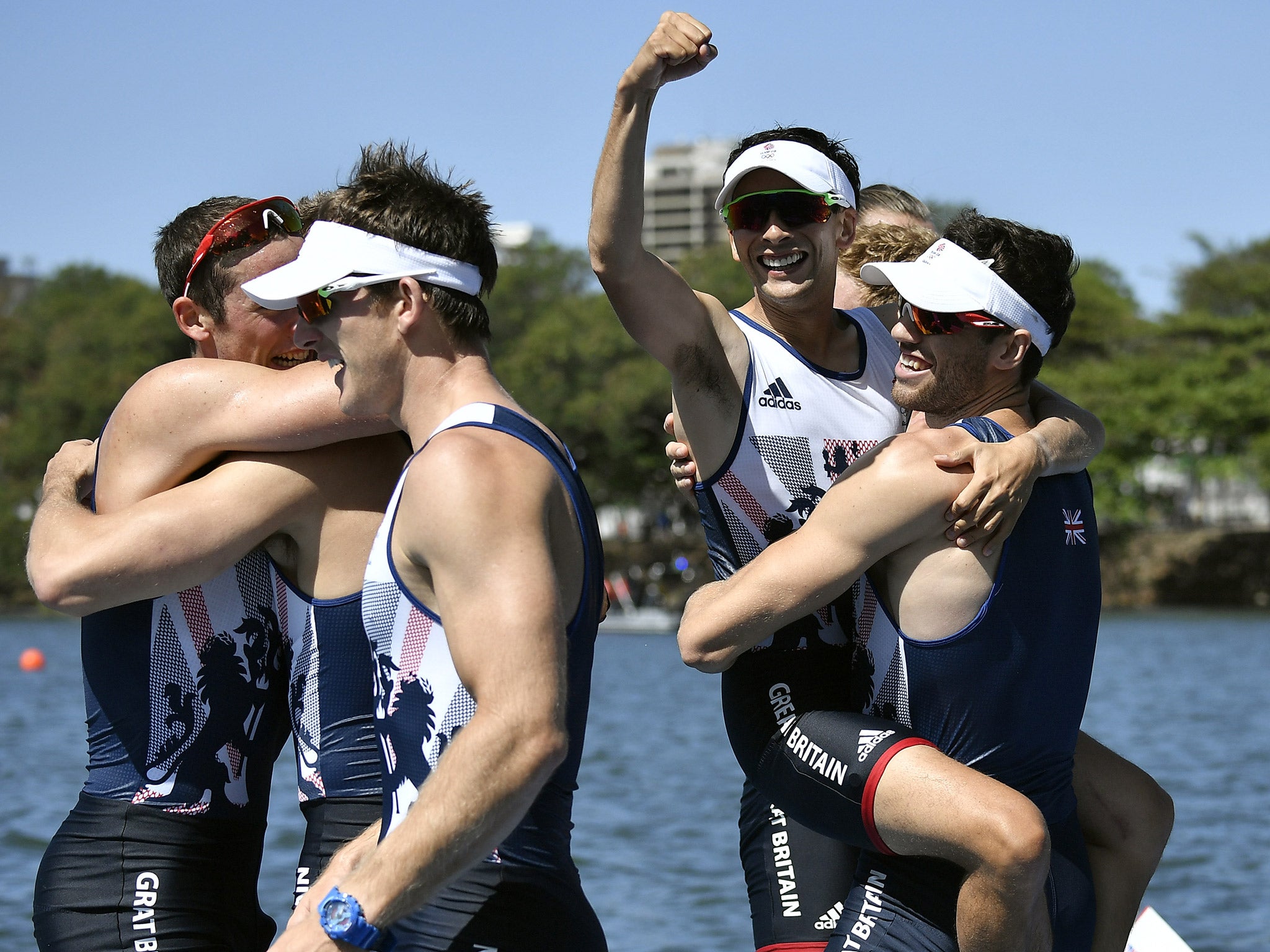Give us a sporting chance to exceed our Olympic glory at Tokyo 2020
For the health of the nation, excellence on the sports field can play an important role – and our Government must not forget that

For Team GB to be bringing home more medals from Rio than they won at the London Olympics four years ago is a hugely impressive achievement. Sport UK set Britain’s Olympians a target of 48 medals, which would have been a record for an overseas Games, while suggesting that, “if all stars align”, there was an outside chance to attain 79. For the team to have got closer to achieving that dream scenario than the official target is something we should cheer from rooftops – and indeed many will have the chance to do so when our sports stars parade through London and Manchester.
The successes in Rio are a consequence of individual brilliance, a strong team ethic and a long-term shift in official policy over the past two decades.
It is easy to forget quite how dismal Britain’s sporting landscape was in the early to mid-1990s. At that stage the Premier League was not the behemoth it was soon to become, England rarely won on the cricket field and, at the 1996 Atlanta Olympics, Team GB’s only gold medallists were Sir Steve Redgrave and Matthew Pinsent; 36th position in the medal table seemed about right.
Yet in the 20 years since, Great Britain has improved its tally at each successive Olympics, with Lottery-based funding key to that trend.
John Major’s decision to set up a National Lottery was not without controversy at the time, yet it has paid dividends in various arenas, including sporting ones. As things stand, 20 per cent of the National Lottery Distribution Fund is channelled to sport, while funding for health initiatives also has a knock-on effect by encouraging better public fitness.
Concern has been expressed that the current level of funding may not be maintained if Britain enters a Brexit-inspired economic downturn. Dame Tessa Jowell – who as Labour’s Olympics minister did so much to help secure the Games for London in 2012 – is clear that a recession resulting from the UK’s withdrawal from the EU could certainly have an impact on funding and that, without sufficient funds, it would be nigh on impossible to continue current levels of sporting performance.
It would be timely for the Government now to make long-term commitments to secure the necessary financial backing for UK Sport and other relevant authorities.
Indeed, there is a strong argument that investment in non-core areas of public life such as sport and culture will become more important in the post-Brexit landscape, with “soft power” a potentially significant means by which Britain can maintain its position on the world stage.
It is certainly true that sporting achievement plays a role in creating a strong national brand. Australia has previously shown the way in this regard – indeed, in other sports (notably cricket), Britain has already borrowed from Australian methods and been duly rewarded.
No Olympics is without its disappointments and, although Britain has won medals in myriad sports – from hockey to showjumping and boxing to kayaking – there has been less athletic success than we might have hoped for. Among the track and field competitors, only the peerless Mo Farah will be bringing back gold.
There may also be questions asked of the Rio organising committee, which has failed to fill venues and – perhaps most worryingly – suddenly found itself without sufficient money to fully fund the upcoming Paralympics. It is to be hoped that, despite the funding concerns, the Paralympics will bring Britain even more sporting glory and that viewers here will tune in to watch on TV, even if live audiences are lacking.
Now the Rio Olympics has come to an end, the International Olympic Committee and the International Paralympic Committee will have some serious matters to review. For those in charge of British sport, now is a good time to reflect on what the future holds, and to build on the triumphs of Rio.
For the health of the nation, both physical and psychological, excellence on the sports field can play a hugely important role. The Government must not forget that.
In the coming years, Britain’s economy and sense of identity may both face hurdles. We should give ourselves a sporting chance by going for even more gold at Tokyo 2020 than we have achieved in Rio.

Join our commenting forum
Join thought-provoking conversations, follow other Independent readers and see their replies